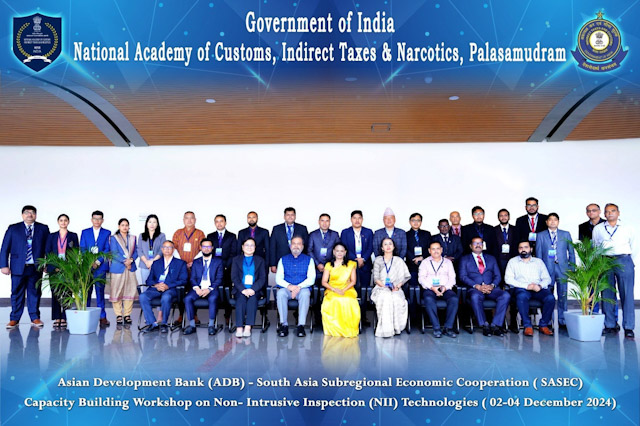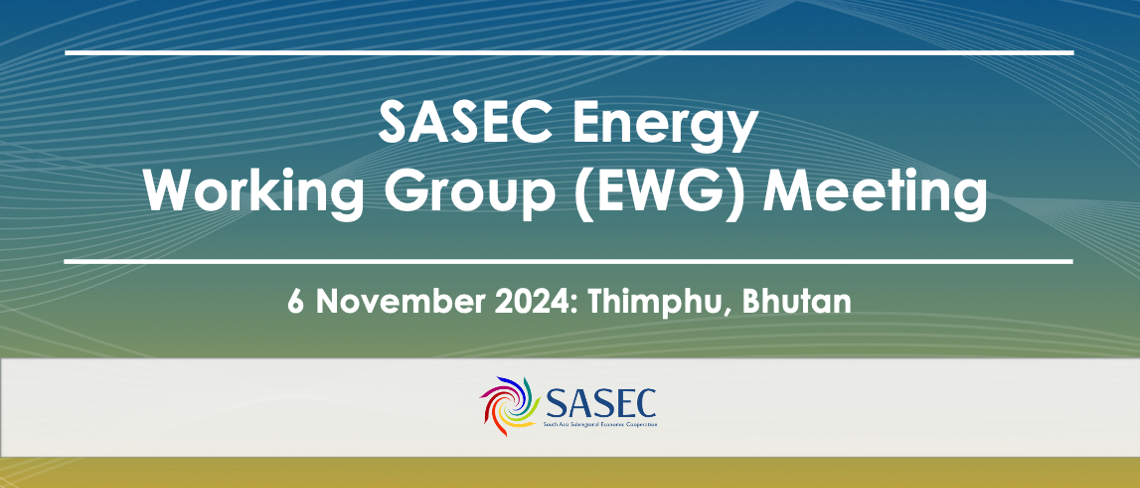
Third Meeting of the SASEC Customs Subgroup
11-12 Mar 2015
The SASEC Customs Subgroup (SCS), formally established in 2013 by the SASEC Trade Facilitation Working Group to promote subregional trade facilitation initiatives, held its third meeting (SCS-3) in Goa, India on 11-12 March 2015, in follow up to the first and second meetings in March 2013 in Bangkok, Thailand and May 2014 in Kathmandu, Nepal, respectively.
Concrete outcomes of the SCS-3 Meeting include:
1. Discussion and agreement on implementation modalities for subregional projects identified in the SCS Work Plan 2014-2016 and broadly endorsed at the Second SCS Meeting.
2. Presentation of national projects aimed toward Customs reform and modernization by SASEC member countries, including:
- Revised Kyoto Convention (RKC) pre- and post-accession measures;
- implementation of risk management and post-clearance audit;
- automation; and
- preparations for national single window.
3. Endorsement of the proposed terms of reference for the detailed Study Proposal on the Electronic Exchange of Trade-Related Information among SASEC member countries. The study is expected to:
- determine the feasibility of electronic data exchange;
- assess its impact; and
- recommend a model for piloting the exchange.
4. Review of recent and upcoming subregional capacity-building activities by the World Customs Organization (WCO) Regional Office for Capacity Building for Asia and Pacific (ROCB-A/P), under the six priority areas endorsed by the second SCS Meeting, including Customs valuation and database, risk assessment, nomenclature for trusted trader programs, national single window, international standards and conventions, and post-clearance audit. The Asian Development Bank (ADB), in close partnership with WCO, highlighted the need to focus further technical assistance in the areas of international standards and conventions and coordinated border management.
The SCS-3 Meeting was chaired by Mr. Sandeep Kumar, Commissioner of India's Central Board of Excise and Customs. Mr. Leonardus Boenawan Sondjaja, Deputy Country Director of ADB's India Resident Mission gave opening remarks. The heads of delegations of SASEC member countries—Bangladesh, Bhutan, India, the Maldives, Nepal, and Sri Lanka—also delivered brief opening statements where the importance of the SCS Work Plan was noted.
Knowledge Sharing Workshop on Customs Compliance Programs
A knowledge-sharing event on Customs compliance programs was held on 11 March 2015: various examples were shared of how a building-block approach can be used to develop full authorized economic operator (AEO) programs. Resource persons included:
- Ms. Harumi Chikada, Regional Development Manager, WCO ROCB-A/P, who gave an overview of Customs compliance programs and authorized traders in the context of the SAFE Framework of Standards, and discussed best practices among ongoing programs;
- Mr. Norikazu Kuramoto, Deputy Director, Office of Counselor for International Affairs and Cooperation, Customs and Tariff Bureau, Ministry of Finance, Japan, who gave an overview of the comprehensive AEO scheme in Japan, including its approach to working with different types of operators;
- Mr. Akhilesh Pandey, Additional Director, Risk Management Division, Central Board of Excise and Customs, India, who focused on the complementarity of AEO programs and accredited client programs, and shared the benefits as well as the challenges of implementing the two schemes;
- Mr. Moh Firstananto Jerusalem, Officer, Customs Headquarter, Jakarta, Indonesia, who discussed Indonesia's facilitation service for priority importers and AEO pilot program.
The Knowledge Sharing Workshop was attended by Customs officials of the SASEC member countries, and representatives from WCO ROCB-A/P. and ADB. Mr. Kumar of the Central Board of Excise and Customs welcomed participants to the learning event.
























